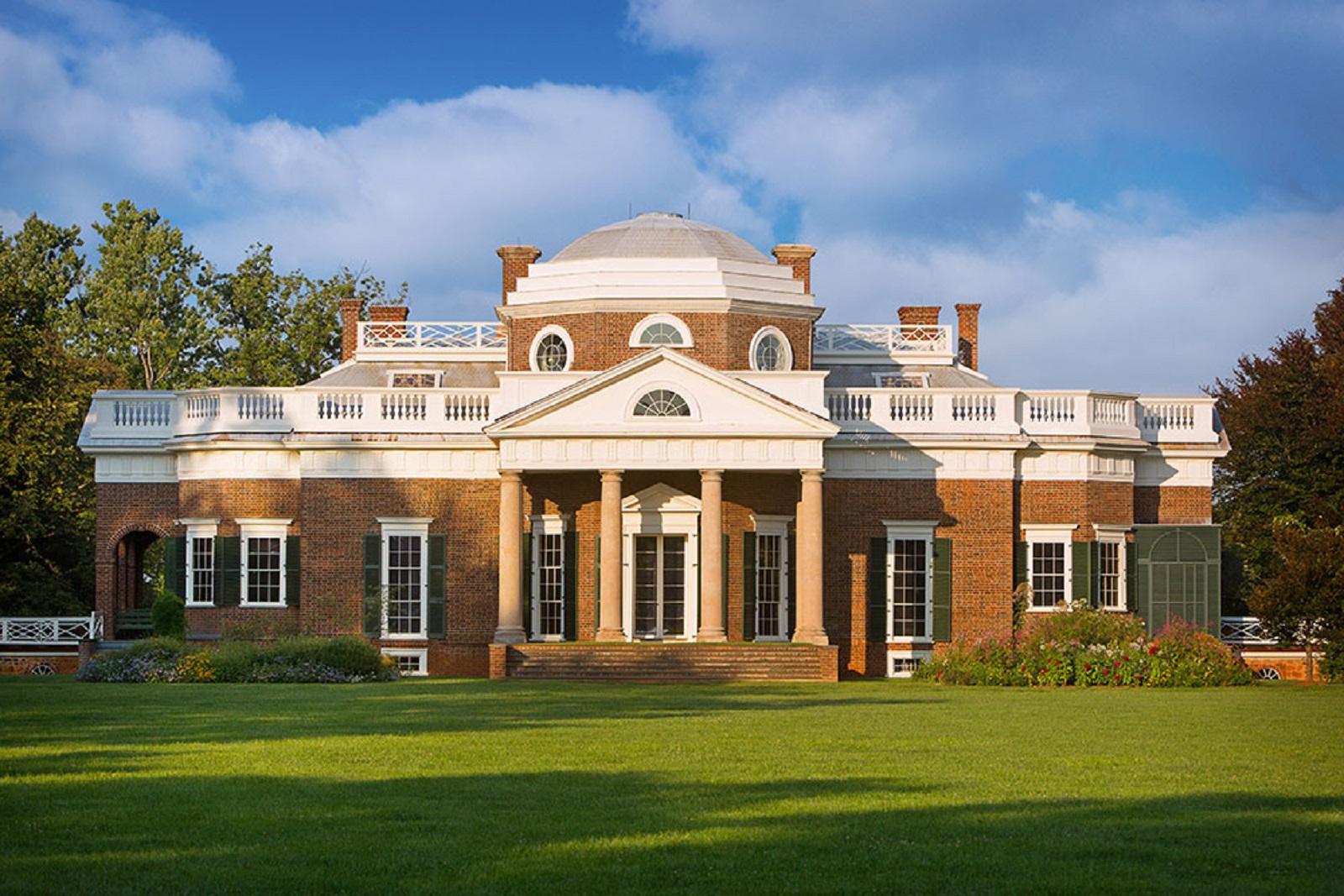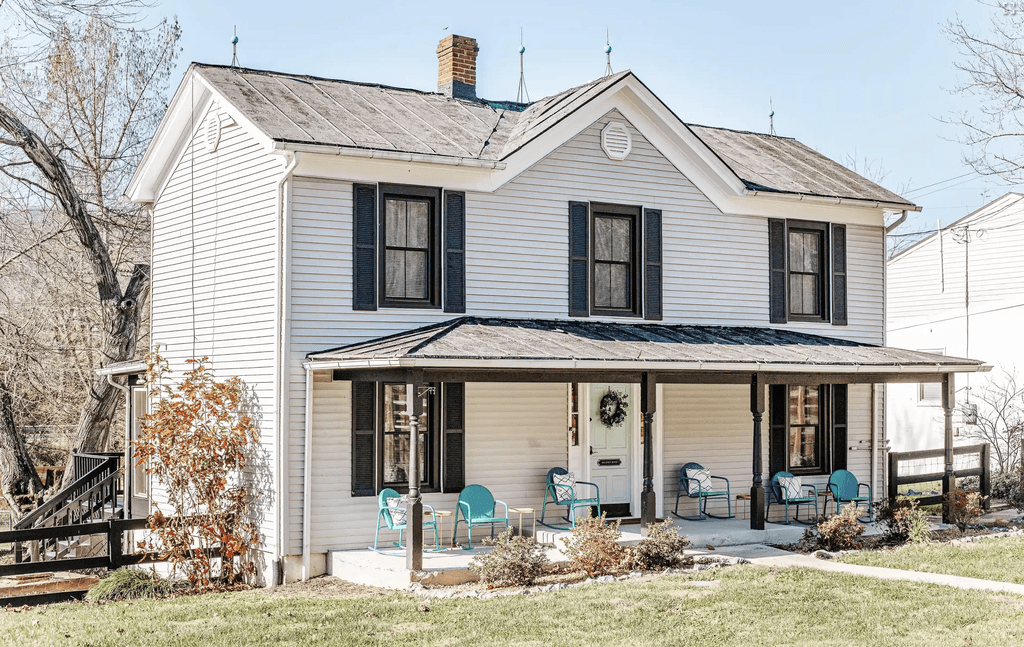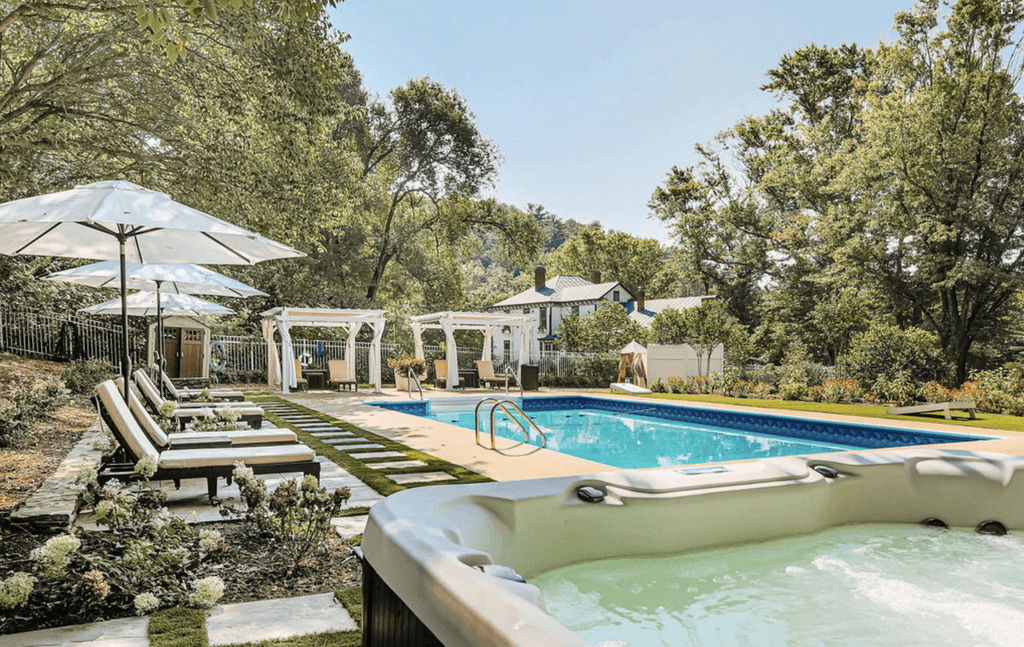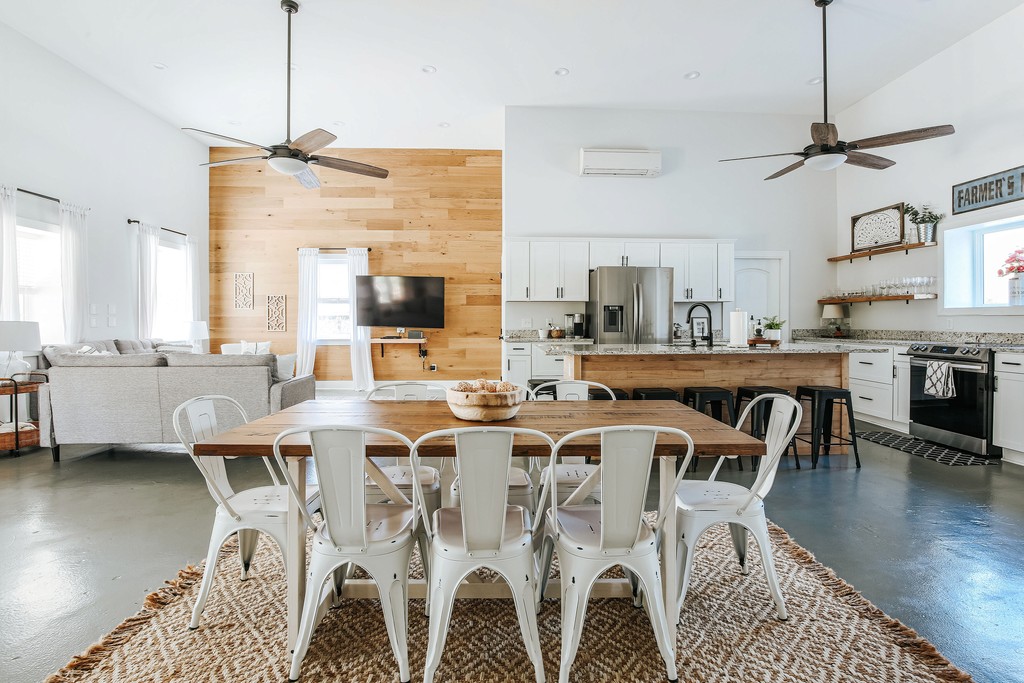Monticello
Hours:
Sunday – Friday, 8:30 AM – 5:30 PM
Saturday, 8:30 AM – 6:30 PM
Monticello: A Journey Through American History
Monticello— Italian for "Little Mountain"— was Thomas Jefferson's residence in Charlottesville's mountains overlooking the third president's beloved city and University. The mountain estate was carefully designed and remodeled over the years according to Jefferson's unique neoclassical architectural vision. The home and plantation have been meticulously preserved and curated and now serve as a beautiful and immersive museum and educational institution. The UNESCO World Heritage site provides visitors with many ways to experience the grounds, with tours that illuminate Jefferson's character and the experiences of the enslaved laborers who lived on the plantation. No matter whether you stroll the wonderfully and authentically maintained gardens, visit the enslaved laborer's quarters, or take in Monticello's eccentrically designed interior directly, a visit is sure to stimulate the mind and the senses as you learn about the day-to-day life of a founding father of the United States.
Monticello offers free parking at the visitor center. Shuttles to the mountaintop are offered from the visitor center after tickets are purchased, but visitors are also welcome to hike the trail to Monticello. The four-mile loop is found approximately a half-mile from the visitor center. Parking directions and transportation options can be found here.
The Significance of Monticello in the United States
Monticello stands as a testament to the ingenuity and character of its creator, Thomas Jefferson. More than just a residence, it is a reflection of Jefferson's multifaceted identity as a statesman, scholar, and architect. This mountaintop estate is not only an iconic piece of American history but also a physical manifestation of Jefferson's ideals and visions.
A Pinnacle of Architectural Achievement
Jefferson designed Monticello himself, infusing it with his design principles and innovative technologies of the time. The home showcases unique architectural features that illustrate Jefferson's ingenuity and his passion for classical designs, which he integrated with modern functionality.
World Heritage Recognition
Monticello holds the distinct honor of being the only home in America designated as a UNESCO World Heritage Site. This prestigious status underscores its global cultural significance, marking it as a crucial piece of human heritage. The designation highlights Monticello's importance not only nationally but on a global scale, as it symbolizes a fusion of cultural, historical, and architectural achievements.
Cultural and Historical Impact
As the home of the third President of the United States, Monticello has witnessed significant historical events and housed countless discussions that have shaped the nation. It is a repository of stories and artifacts that offer insights into the early years of the United States and the minds that guided it.
In essence, Monticello is not just a preserved historical site; it is a symbol of American history, culture, and progress. It invites us to reflect on both the accomplishments and complexities of its era, offering a window into the past from which we can learn and grow.
Events at Monticello
Monticello offers a robust selection of special events and exhibitions throughout the year. A full schedule can be found here. The holiday season offers visitors a special opportunity to visit the mountaintop after dark, with special tour information and displays allowing visitors to immerse themselves in the experience of a holiday during Jefferson's time. Other creative opportunities like wreath-making workshops are sprinkled in throughout wintertime. The summer brings special occasions, including programming on Juneteenth entitled "Ascendant," which seeks to empower and honor the voices of marginalized communities and pay tribute to the enslaved people who populated Monticello. July 4, the date of Jefferson's death, is another special time at Monticello. The West Portico hosts an elaborate ceremony for individuals taking their Oath of Citizenship. The occasion is marked by special music, guests including former President George W. Bush, and root beer and activities after the ceremony. This is but a sampling of the extraordinary opportunities Monticello regularly offers, so be sure to check out the calendar around the time of your visit to plan accordingly. Monticello also hosts private events including weddings, receptions, business events, and more by request. Tours can be incorporated into events if preferred. A link to explore private event rental options can be found here.
Conference Room Capacities at Monticello
When hosting an event, meeting, or conference at Monticello, you have a variety of room sizes to choose from that cater to different group sizes and requirements. Here’s a breakdown of the available capacities:
Small Conferences: Ideal for intimate gatherings, rooms accommodating up to 20 participants are available, perfect for private meetings and focused sessions.
Medium Conferences: For slightly larger groups, room options exist that can comfortably host between 21 and 40 attendees.
Large Conferences: If you're planning a bigger event, choose from spaces that can accommodate 76 to 100 guests, ensuring ample room for a productive gathering.
Extra Large Conferences: For your expansive events, facilities are available that can hold groups from 101 up to 300 attendees, making them suitable for major events and large-scale meetings.
These varied options ensure that no matter the size of your event, there's a perfect space to meet your needs at Monticello.
Insider Tips
The best advice for a first-time visitor to Monticello is to plan ahead. The grounds and attractions are massive and numerous, so arriving without a plan might make for an overwhelming experience. The official website tells visitors an average of three-and-a-half hour visits, so be sure to budget your time wisely and make sure to make a list of what you feel would most interest you or your group. Selecting the right tour will go a long way toward making the most enriching experience possible. Factor weather is also a factor in your decision to visit, as Monticello is as much an indoor and outdoor experience. Mulberry Row, the gardens, and the cemeteries are all as important to the story Monticello tells as the home itself. Also, be sure to familiarize yourself with the discounts and special rates. Locals, SNAP recipients, students, veterans, seniors, and others receive reduced or free ticket prices, so check this link to ensure you don't overspend. Monticello also provides extensive Do's and Don'ts and Tips for Visiting pages which are valuable resources in preparing for a visit.
Amenities
Pros
What makes Monticello special is its diverse selection of tours and experiences. The numerous tour options manage to capture the architectural ingenuity behind the estate, the beautiful natural scenery, the complex legacy of Jefferson, and the lives of all the other residents of the plantation. Your experience at Monticello can be a broad overview, a highly personalized and guided exploration of your specific interests, or a completely hands-off independent exploration. The site is also wonderfully maintained and contextualized. Monticello prioritizes authenticity, adherence to Jefferson's vision, and reverence for the enslaved laborers. Additionally, the Monticello Shops offer plenty of souvenir or gift opportunities, while the Monticello Farm Table provides a locally sourced, healthy dining option. Monticello is ADA Compliant, Virginia Green Certified, and smoke-free.
Cons
While Monticello's curators are conscious of their responsibility to accessibility, Jefferson did not design his home with disabled visitors in mind. Disabled visitors or assistants are highly recommended to call ahead or visit the accessibility webpage for more information or accommodations before visiting. Shuttling up the mountain may provide enough of ahassle, while wheelchair width is a concern inside the estate, and gravel pathways on the grounds may deter some visitors with mobility issues. Also, suppose you fall outside of the parameters of the generous reduced rate offers. In that case, Monticello can end up costing a pretty penny. Though Monticello is a worthwhile and borderline necessary experience for any Charlottesville visitor, the combined price of tickets, shops, and food can add up.
Nearby Attractions
Monticello is a one-of-a-kind experience. Barring his University of Virginia, no landmark is more representative of Jefferson's philosophies, practices, and essence. The University's Rotunda is built with a similar design, and visiting it and Monticello is a complementary experience. James Monroe's Highland is another historic mountain estate of a former president found nearby, offering similar views and providing a useful encapsulation of one of Jefferson's contemporaries and friends. Finally, Jefferson's alternative residence, Poplar Forest, can be found in Lynchburg for those hungry for more information on the author Declaration of Independence.
Families visiting Charlottesville and Albemarle County can dive into a plethora of outdoor activities that cater to all ages. From lush parks to scenic hiking trails, there’s something for everyone to enjoy.
Hiking and Walking Trails: Discover the beauty of the Blue Ridge Mountains with family-friendly hikes offering breathtaking views. Trails range from easy to moderate, ensuring an adventure suitable for every member of the family.
Cycling Paths: For families who love biking, there are several well-maintained cycling paths. These paths wind through stunning landscapes, providing a mix of challenge and leisure.
Charlottesville is home to numerous parks perfect for picnics, playground fun, or simply relaxing in the natural surroundings. These parks often feature sports fields and walking paths, ideal for an active day outdoors.
Rivers and Lakes: Cool off during warmer months with kayaking, canoeing, or paddle boating. Various local providers offer equipment rentals and guided tours to enhance your water adventure.
Nature Centers and Reserves: Engage with the region’s wildlife through educational programs and guided tours. These centers provide insightful experiences about local flora and fauna, making learning fun for kids and adults alike.
By embracing the outdoor opportunities in Charlottesville and Albemarle County, families can create memories filled with exploration and adventure.
Frequently Asked Questions
Why did Thomas Jefferson build Monticello?
Jefferson inherited the property that would become Monticello from his father, Peter. At age 25, he decided to level the hill where Monticello would be built to build a home that would anchor him to Charlottesville despite voyages to Europe, serving as the third President of the United States, and more. Jefferson spent the next forty years developing and redesigning his home to serve as a plantation, library, and, above all else, his personal "essay in architecture."
How do you pronounce "Monticello"?
This video offers a phonetic reading of Monticello.
What is a neoclassical characteristic of Thomas Jefferson's Monticello?
Jefferson drew on a variety of architectural inspirations while creating his own distinct "Jeffersonian" architecture. Among the more prominent features are the columns found on the western front and the domed roof, both of which are hearken back to Ancient Greek and Roman design.
On whose design did Thomas Jefferson model Monticello?
Again, the inspiration behind Monticello is varied. The classical references pair with Jefferson's study of Italian Renaissance architect Andrea Palladio's Four Books of Architecture. While Monticello originally stood as a more simplistic and rustic home, Jefferson bolstered his design with inspiration from the Parisian Hotel de Salm after a visit to France. Despite all these influences, Jefferson created an entirely distinct architectural aesthetic that is praised and studied to this day.
Why did Thomas Jefferson locate Monticello on a hilltop?
One of Jefferson's favorite architects, Andrea Palladio, claimed that homes should be built in "elevated and cheerful" locations, which surely contributed to Jefferson's decision to place his home atop the hills and mountains of Charlottesville (though we suspect inheriting the property also played a role). Ask your tour guide or a member of the staff for more information on Jefferson's rationale.
What happened to the enslaved people at Monticello?
Monticello's Slavery FAQ page does a good job of encapsulating the enslaved experience at Monticello, while persistent physical and informational reminders of the dark truth of slavery at Monticello are nearly inescapable.
In sum, Jefferson's treatment of enslaved people was comparable to other slaveholders of the era. While he professed ideas of equality and liberty, Jefferson inherited, bought, sold, traded, threatened, sexually violated, and ordered the beating of enslaved people at Monticello. Nearly 20 enslaved people escaped Monticello, while Jefferson freed only 10 out of the approximately 600 total people he enslaved.
Why did Jefferson keep his enslaved laborers?
While Enlightenment ideals promoted a form of equality and liberty, it was still deeply entrenched in racist logic and ideology. Jefferson is a complex and often contradictory figure, who ultimately benefitted from owning enslaved people despite his profession that all men were created equal.
Best places to stay when visiting Monticello
If you’re planning a visit to Monticello, here’s my local tip: skip the city hotels and stay in Afton instead. It’s just a 25-minute drive from Jefferson’s estate, and the views, peace, and charm out here are worth every extra mile. Plus, you’ll be right in the heart of the Route 151 wine and craft beer trail—perfect for unwinding after a day of history.
My top pick is Afton Mountain Inn. It’s a beautiful boutique property with a resort-style pool, hot tubs, fire pits, and even a creekside trail. I once spent a lazy afternoon there swinging under the trees with a good book and a local cider—total bliss. Great for couples, small groups, or anyone who wants a peaceful, luxurious stay.
If you’re traveling with friends, check out Afton Clubhouse. It’s a stylish three-bedroom spot that used to be an art gallery and now has fun extras like shuffleboard, a basketball hoop, and a hot tub. I stayed here for a girls’ weekend once, and we barely left the place—except to hit a few wineries, of course. Bringing the whole family? Afton Farmhouse is your best bet. It sleeps up to 10, has a bunk room for the kids, a foosball table, and a backyard with a playground and soccer area. It’s a cozy, laid-back place where kids can run free and grownups can enjoy a drink by the fire pit.
Want even more options? Check out my full guide to The Best Hotels and Places to Stay Near Monticello. Whether you’re after luxury, charm, or a place big enough for the whole crew, I’ve got you covered.



